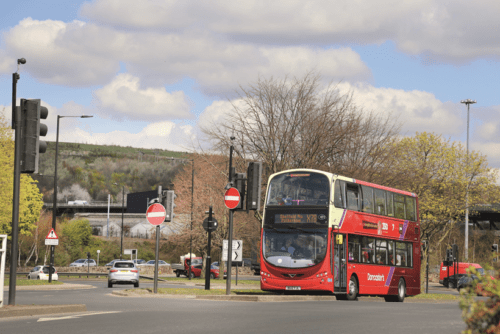
South Yorkshire’s Mayoral Combined Authority is hoping to move ahead with franchising plans, if the assessment report is approved at board level
South Yorkshire Mayor Oliver Coppard says he welcomes the conclusion of the Combined Authority’s franchising assessment, which found that buses in the region should be taken back under public control, with both depots and the vehicle fleet owned by the Mayoral Combined Authority (MCA) as the preferred option. If the franchising assessment report is approved by the MCA board, the next step would be for the MCA to obtain a report from an independent auditor before proceeding with its franchising scheme, followed by a 12-week public consultation before it decides whether to implement the scheme.
A commitment to bus reform has been a long-standing pledge from the Mayor, who says that feedback from 30 public meetings on bus services across all four boroughs in South Yorkshire tells him the current system is not working.
Promising a radical transformation, the Mayor said: “We will be taking a big decision about the future of our buses, the next big step towards radically transforming how buses work in South Yorkshire. Because right now our bus services are in a spiral of decline. That’s not just a disaster for our economy, or our environment, it’s denying opportunity to people right across our communities.
“That’s why I have always been committed to radically improving our public transport network; because ultimately if we want people to stay near and go far in South Yorkshire, we need a better public transport system. We are already getting the tram back under public control, and now this is another huge step towards us getting better buses and getting back the world class bus system we once had.
“Having seen the full franchising assessment, I believe it shows that bus franchising – taking buses back into public control, so we make all the major decisions not private bus companies – is the best way to do just that; to radically transform how our buses work, and to deliver the services we deserve. Next week’s meeting will allow us to take the next big step towards bus reform and if the MCA Board agree, we will then move to an independent audit; the next stage in the process.
“I want us to have nothing less than a world class, fully integrated public transport system connecting up our buses, trams, trains and active travel routes, so we can give everybody choice and freedom about how to travel and move across South Yorkshire.”
Mileage and funding
Figures cited by the MCA show a constant decline in the bus market in South Yorkshire along with an increasing reliance on public funding to sustain bus service levels. Over the past decade, it says, bus mileage has declined by 42%, and although in 2012/13, 13% of the bus network mileage was supported by public funding by 2022/23 this had grown to 20%. For 2023/24, the forecast is that the proportion of supported services will increase to 24%, funded by the MCA investing reserves to maintain and stabilise service levels.
The MCA adds that South Yorkshire’s buses have an average age of 11.5 years old, above the eight year national average, and set against a life expectancy of 15 years. Investment to renew the ageing bus fleet is required urgently from an economic perspective, it says, but also to achieve net zero aims.
South Yorkshire receives just over £10 per head of population of government funding towards buses, says SYMCA, whilst neighbouring West Yorkshire receives nearly £40 per head, Greater Manchester £39 per head and the West Midlands £36 per head. South Yorkshire was also the only MCA to receive no funding in the first round of the Government’s Bus Service Improvement Plan funding.
Looking at financial implications of franchising, the MCA’s assessment notes that it will require significant capital investment to procure depots and renew the bus fleet as well as funding to support the transition period and ongoing revenue support, which it says will be achieved by raising income through the transport levy, adding that the element of the levy which funds bus activity would need to be inflation-linked. The MCA says taking control of the depots and fleets is affordable and represents value for money, and is the best option it considered in its proposals, which also included assessing the current model of Enhanced Partnership and Enhanced Partnership Plus.
Under the preferred franchising model, the MCA would make the depots and fleet available to bidders for the relevant franchise lots. It would acquire the legacy fleet from incumbent operators. It would also be responsible for financing, funding, procuring and delivering enhancements to the depots and fleet, with the operators being responsible for routine maintenance of vehicles and depots.

